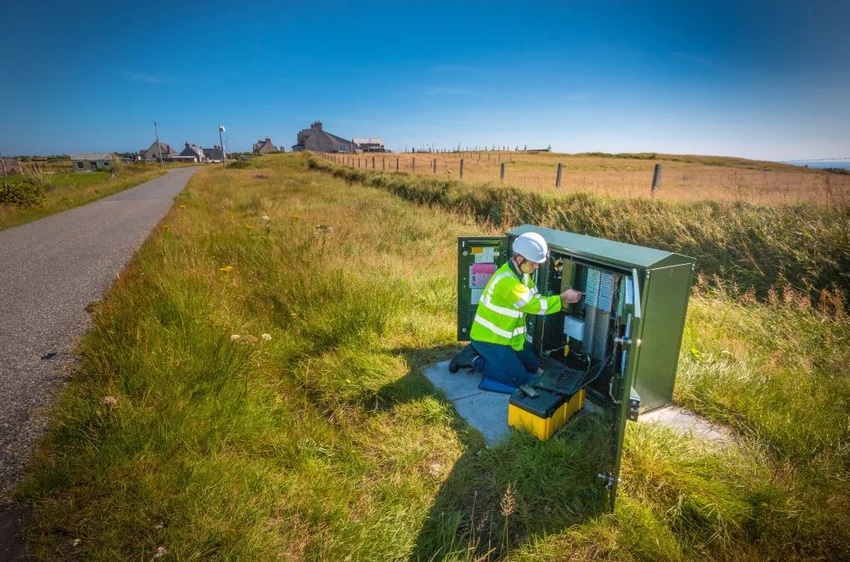BT CEO Gavin Hasselhoff Patterson has answered the UK government battle cry for universal high speed broadband with a suitably conditioned statement which could end up meaning absolutely nothing.
July 31, 2017

BT CEO Gavin Hasselhoff Patterson has answered the UK government battle cry for universal high speed broadband with a suitably conditioned statement which could end up meaning absolutely nothing.
Perhaps we shouldn’t be surprised at such statements, but the progress the UK is making in driving towards the digital economy is so painfully slow. Not only are we going to have to negotiate the roadblocks being thrown up by Brexit to stay relevant in the global economy, but the challenges put forward by our digital handicap has the potential to turn this headache into a full-blown migraine.
The ‘pledge’ follows comments from Culture Secretary Karen Bradley as BT has put forward an offer to voluntarily provide high speed broadband, which would largely be delivered by Openreach. The government has committed to introduce a Universal Service Obligation (USO) through regulation to give every home and business in the UK the right to request a high speed connection of at least 10 Mbps, though we all know how much government guarantees usually count for. The offer from BT could be an alternative to regulation.
“We are pleased to make a voluntary offer to deliver the Government’s goal for universal broadband access at minimum speeds of 10Mbps,” said Patterson. “This would involve an estimated investment of £450m-£600m depending on the final technology solution.”
As you can see from the conditions set into the pledge below, there isn’t really a commitment of any kind. A double hedge in the same sentence (estimates of investment depending on the technology which will be used) leaves so much wiggle room our Gav could be hula-hooping from Land’s End to John o’ Groats.
Fixed coverage would be made available to as many premises as possible, and BT expects to complete the build of this fixed network by either December 2021 or December 2022. Of course this depends on the mix of technologies used, some of which are subject to trial and industry consultation. The lack of concrete information in the statement is slightly baffling, and begs the question as to how much value should be placed on this commitment in the first place.
Another point to take into consideration is that this commitment would assist the government in meeting its 2020 connectivity ambitions, but it wouldn’t make use of public funds. It’s a commercial project which means there is unlikely to be any price protection for the consumers or companies like TalkTalk or Sky. There is a very real chance consumers could see bills increase as BT aims to drive ROI. BT has said it would recapture the investment leasing the rural networks to its rivals, but how much of this cost will be passed onto the consumer?
The government has not committed to the idea as of yet, as there will need to be research conducted as to what the best option will be. Will this voluntary agreement work out better than a regulated approach to universal connectivity? It would certainly make the connectivity ambitions more attainable, but what would be the long-term repercussions? Is a lack of government action over the last 2-3 years coming back to haunt it as the deadline approaches?
BT’s project could start in the very near future, though passing through legislation and regulation for the USO could take years. It might be viewed as a tempting offer. Let’s hope there are no panic decisions made due to the pressure, but another consultation is going to eat up precious time. It’s a tricky situation to be in, but one which has been entirely self-created.
About the Author(s)
You May Also Like








.png?width=300&auto=webp&quality=80&disable=upscale)


_1.jpg?width=300&auto=webp&quality=80&disable=upscale)


.png?width=800&auto=webp&quality=80&disable=upscale)